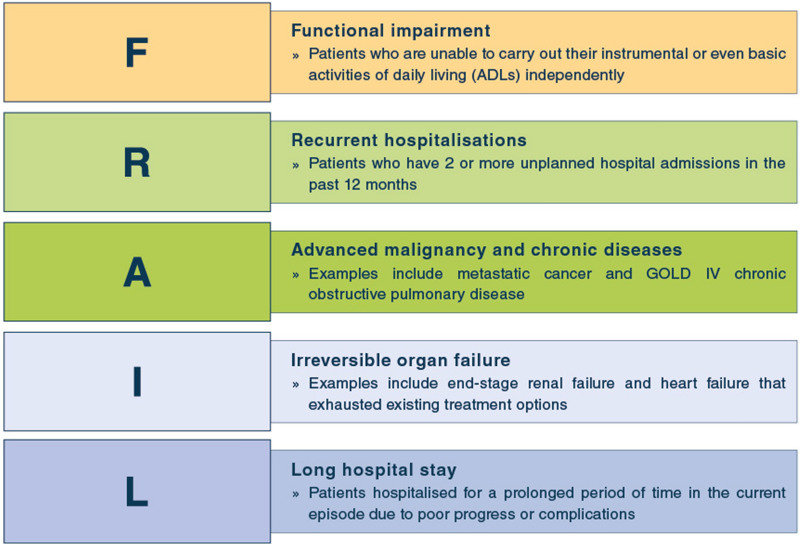Dear Editor,
The concept of time-limited trial (TLT) has been proposed as a practical approach to establish the goals of intensive care unit (ICU) care when the long-term outcomes and overall benefits of aggressive interventions are uncertain [1]. Judicious triage and provision of scarce ICU resources are especially important in the context of coronavirus disease 2019 (COVID-19) pandemic [2].
TLT is typically most appropriate for patients with limited life expectancy or physiological reserve [1]. Usual TLT candidates are patients for whom ICU treatment cannot be clearly categorised as beneficial (e.g. young and fit patients presented with polytrauma) or non-beneficial (e.g. terminally ill cancer patients who opted for palliative care). A recent study has shown that increased use of TLT as the default management strategy for patients with advanced medical illnesses reduced ICU length of stay and invasive procedures, without affecting overall hospital mortality or family satisfaction with ICU care [3].
Conventionally, a dichotomous decision of admission vs non-admission is made in the ICU triage process. At this juncture, uncertainties over a patient’s prognosis are often overwhelming, and an approach of unrestricted ICU treatment is typically assumed for patients newly admitted to the ICU. However, we advocate that upfront discussion of TLT should be considered at the time of ICU triage and admission if the anticipated long-term benefit of unrestricted ICU treatment is uncertain due to medical reasons. TLT acknowledges such clinical uncertainties and prevents invasive ICU interventions from being extended until the appropriateness of such treatment can be more accurately assessed. Initiating TLT discussion very early on in the patient’s ICU journey empowers the patient and family members in understanding the probable clinical trajectories, reaching consensus in the goals of care, and minimising unrealistic expectations and false hopes on ICU treatment.
At our centre, we have designed the following mnemonic “F-R-A-I-L” (Fig. 1), a screening checklist to prompt TLT discussion when ICU admission is being considered: (a) Functional impairment, (b) Recurrent hospitalisations, (c) Advanced malignancy or chronic diseases, (d) Irreversible organ failure and (e) Long hospital stay. These conditions represent manifestations of frailty syndrome [4] (a and b), anticipated limited recovery potential (c and d) and poor response to ongoing therapy or other underlying conditions associated with worse clinical outcome [5] (e). These criteria encompass the patient characteristics reported in a previous TLT cohort [3]. Conceptually, patients meeting any one of these criteria are more likely to benefit from upfront TLT discussion given the uncertain incremental clinical benefit of ICU admission.
Fig. 1.
The F-R-A-I-L mnemonic for TLT discussion upon ICU triage and admission
The F-R-A-I-L checklist is intended to be a cognitive aid for enhancing situational awareness, especially for junior clinicians who may not immediately appreciate the burdens and harms of potentially inappropriate ICU treatment. It could be used as an adjunct to existing ICU triage practices, although we are aware of the caveat that F-R-A-I-L has neither been designed nor validated as a formal screening tool. As a word of caution, the decision-making process for TLT should always involve careful clinical judgement by experienced ICU physicians. We do not imply that TLT is always indicated for patients meeting the F-R-A-I-L criteria, or vice versa. F-R-A-I-L serves as an easy-to-remember reminder but does not replace sensible clinical assessment.
It is important to highlight the notion that TLT is more empowering than “limiting”. Considering the limited capacity of critical care in most societies amid the COVID-19 pandemic, TLT could be an ethical alternative to unrestricted ICU treatment or non-provision of ICU care. Readiness to considering TLT upfront may improve the quality of care for patients who have relatively unfavourable recovery potential in face of critical illnesses [1].
Authors’ contributions
EHL, JCH and YY wrote the manuscript.
Declarations
Conflicts of interest
No competing interests or funding to declare.
Footnotes
Publisher's Note
Springer Nature remains neutral with regard to jurisdictional claims in published maps and institutional affiliations.
References
- 1.Vink EE, Azoulay E, Caplan A, et al. Time-limited trial of intensive care treatment: an overview of current literature. Intensive Care Med. 2018;44:1369–1377. doi: 10.1007/s00134-018-5339-x. [DOI] [PubMed] [Google Scholar]
- 2.Aziz S, Arabi YM, Alhazzani W, et al. Managing ICU surge during the COVID-19 crisis: rapid guidelines. Intensive Care Med. 2020;46:1303–1325. doi: 10.1007/s00134-020-06092-5. [DOI] [PMC free article] [PubMed] [Google Scholar]
- 3.Chang DW, Neville TH, Parrish J, et al. Evaluation of time-limited trials among critically ill patients with advanced medical illnesses and reduction of nonbeneficial ICU treatments. JAMA Intern Med. 2021;181(6):786–794. doi: 10.1001/jamainternmed.2021.1000. [DOI] [PMC free article] [PubMed] [Google Scholar]
- 4.De Biasio JC, Mittel AM, Mueller AL, et al. Frailty in critical care medicine: a review. Anesth Analg. 2020;130:1462–1473. doi: 10.1213/ane.0000000000004665. [DOI] [PMC free article] [PubMed] [Google Scholar]
- 5.Ofori-Asenso R, Liew D, Mårtensson J, Jones D. The frequency of, and factors associated with prolonged hospitalization: a multicentre study in Victoria. Austral J Clin Med. 2020;9(9):3055. doi: 10.3390/jcm9093055. [DOI] [PMC free article] [PubMed] [Google Scholar]



